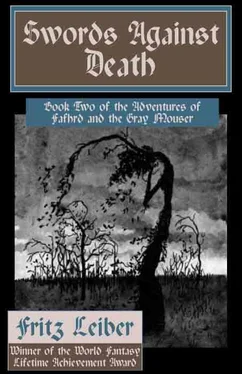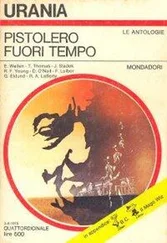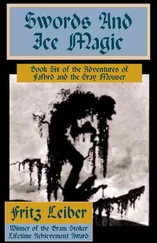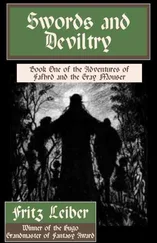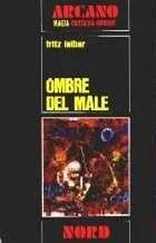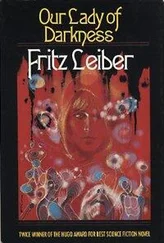Fritz Leiber - Swords Against Death
Здесь есть возможность читать онлайн «Fritz Leiber - Swords Against Death» весь текст электронной книги совершенно бесплатно (целиком полную версию без сокращений). В некоторых случаях можно слушать аудио, скачать через торрент в формате fb2 и присутствует краткое содержание. Жанр: Героическая фантастика, Фэнтези, на английском языке. Описание произведения, (предисловие) а так же отзывы посетителей доступны на портале библиотеки ЛибКат.
- Название:Swords Against Death
- Автор:
- Жанр:
- Год:неизвестен
- ISBN:нет данных
- Рейтинг книги:5 / 5. Голосов: 1
-
Избранное:Добавить в избранное
- Отзывы:
-
Ваша оценка:
- 100
- 1
- 2
- 3
- 4
- 5
Swords Against Death: краткое содержание, описание и аннотация
Предлагаем к чтению аннотацию, описание, краткое содержание или предисловие (зависит от того, что написал сам автор книги «Swords Against Death»). Если вы не нашли необходимую информацию о книге — напишите в комментариях, мы постараемся отыскать её.
The Fafhrd and Gray Mouser stories follow the lives of two larcenous but likable rogues as they adventure across the fantasy world of Nehwon. The pieces in
follow the duo as they shake the dust of Lankhmar from their feet in the wake of the deaths their of their first loves. There follow a miscellaneous series of adventures from their wanderings.
Swords Against Death — читать онлайн бесплатно полную книгу (весь текст) целиком
Ниже представлен текст книги, разбитый по страницам. Система сохранения места последней прочитанной страницы, позволяет с удобством читать онлайн бесплатно книгу «Swords Against Death», без необходимости каждый раз заново искать на чём Вы остановились. Поставьте закладку, и сможете в любой момент перейти на страницу, на которой закончили чтение.
Интервал:
Закладка:
Swords Against Death
by Fritz Leiber
I: The Circle Curse
A tall swordsman and a small one strode out the Marsh Gate of Lankhmar and east along Causey Road. They were youths by their skin and suppleness, men by their expressions of deep-bitten grief and stony purpose.
The sleepy guardsmen in browned-iron cuirasses did not question them. Only madmen and fools willingly leave the grandest city in the world of Nehwon, especially at dawn and afoot. Besides, these two looked extremely dangerous.
Ahead the sky was bright pink, like the bubbling rim of a great crystal goblet brimmed with effervescent red wine for delight of the gods, while the paler pink glow rising therefrom drove the last stars west. But before the sun could glare one scarlet sliver above the horizon, a black storm came racing out of the north over the Inner Sea — a sea-squall making landfall. It grew almost as dark again as night, except when the lightning stabbed and the thunder shook his great iron shield. The stormwind carried the salty tang of the sea commingled with the foul reek of the marsh. It bent the green swords of the sea grass flat and lashed into writhing the arms of the thorn and seahawk trees. It pushed black swampwater a yard up the northern side of the narrow, serpentine, flat-topped ridge that was Causey Road. Then came pelting rain.
The two swordsmen made no comment to each other and did not alter their movements, except to lift their shoulders and faces a little and slant the latter north, as if they welcomed the storm's cleansing and sting and what tiny distraction it brought to some deep agony of mind and heart.
“Ho, Fafhrd!” a deep voice grated above the thunder's growl and the wind's roar and the rattle of the rain.
The tall swordsman turned his head sharply south.
“Hist, Gray Mouser!”
The small swordsman did likewise.
Close by the southern side of the road a rather large, rounded hut stood on five narrow posts. The posts had to be tall, for Causey Road ran high here yet the floor of the hut's low, rounded doorway looked straight at the tall swordsman's head.
This was nothing very strange, except that all men know that none dwell in the venomous Great Salt Marsh, save for giant worms, poison eels, water cobras, pale spindle-legged swamp rats, and the like.
Blue lightning glared, revealing with great clarity a hooded figure crouched inside the low doorway. Each fold and twist of the figure's draperies stood out as precisely as in an iron engraving closely viewed.
But the lightning showed nothing whatsoever inside the hood, only inky blackness.
Thunder crashed.
Then from the hood the grating voice recited the following lines, harshly and humorlessly hammering out the words, so that what was light verse became a dismal and doomful incantation:
Ho, Fafhrd tall!
Hist, Mouser small!
Why leave you the city
Of marvelous parts?
It were a great pity
To wear out your hearts
And wear out the soles of your feet,
Treading all earth,
Foregoing all mirth,
Before you once more Lankhmar greet.
Now return, now return, now!
This doleful ditty was three-quarters done before the two swordsmen realized that they were striding along steadily all this while and the hut still abreast them. So it must be walking along with them on its posts, or legs rather. And now that they were aware of this, they could see those five thin wooden members swinging and knee-bending.
When the grating voice ceased to speak on that last great “now,” Fafhrd halted.
So did the Mouser.
So did the hut.
The two swordsmen turned toward the low doorway, facing it squarely.
Simultaneously with deafening thunderclap, a great bolt of lightning struck close behind them. It jolted their bodies, shocked their flesh thrillingly and painfully, and it illumined the hut and its dweller brighter than day, yet still revealed nothing inside the dweller's hood.
If the hood had been empty, the draperies at its back would have been shown clearly. But no, there was only that oval of ebon darkness, which even the levinbolt could not illumine.
As unmoved by this prodigy as by the thunder-stroke, Fafhrd bellowed above the storm toward the doorway, his voice sounding tiny to himself in his thunder-smitten ears, “Hear me, witch, wizard, nightgaunt, whatever you are! I shall never in my life enter again the foul city which has stolen from me my dearest and only love, the incomparable and irreplaceable Vlana, for whom I shall forever grieve and for whose unspeakable death I shall forever feel guilt. The Thieves’ Guild slew her for her freelance thieving — and we slew the slayers, though it profited us nothing at all.”
“Likewise I shall never lift foot toward Lankhmar again,” the Gray Mouser took up from beside him in a voice like an angry trumpet, “the loathy metropolis which horribly bereft me of my beloved Ivrian, even as Fafhrd was bereft and for similar reason, and left me loaded with an equal weight of sorrow and shame, which I shall bear forever, even past my perishing.” A salt spider big as a platter sailed close by his ear in the grip of the gale, kicking its thick, corpse-white legs, and veered off past the hut, but the Mouser did not start in the least and there was no break whatever in his words as he continued, “Know, being of blackness, haunter of the dark, that we slew the foul wizard who murdered our loves and killed his two rodentine familiars and mauled and terrorized his employers at Thieves’ House. But revenge is empty. It cannot bring back the dead. It cannot assuage by one atom the grief and guilt we shall feel forever for our darlings.”
“Indeed it cannot,” Fafhrd seconded loudly, “for we were drunk when our darlings died, and for that there is no forgiveness. We highjacked a small treasure in gems from thieves of the Guild, but we lost the two jewels beyond price and without compare. And we shall never return to Lankhmar!”
Lightning shone from beyond the hut and thunder crackled. The storm was moving inland, south from the road.
The hood that held darkness drew back a little and slowly shook from side to side, once, twice, thrice. The harsh voice intoned, fainter because Fafhrd's and the Mouser's ears were still somewhat deafened and a-ring from that father of thunderstrokes:
Never and forever are neither for men.
You'll be returning again and again.
Then the hut was moving inland too on its five spindly legs. It turned around, so that its door faced away from them, and its speed increased, its legs moving nimbly as those of a cockroach, and was soon lost amongst the tangle of thorn and seahawk trees.
So ended the first encounter of the Mouser and his comrade Fafhrd with Sheelba of the Eyeless Face.
Later that day the two swordsmen waylaid an insufficiently guarded merchant Lankhmar-bound, depriving him of the best two of his four cart-horses — for thieving was first nature to them — and on these clumping mounts made their way out of the Great Salt Marsh and across the Sinking Land to the sinister hub-city of Ilthmar with its treacherous little inns and innumerable statues and bas-reliefs and other depictions of its rat-god. There they changed their clumsy horses for camels and were soon humping south across the desert, following the eastern shore of the turquoise Sea of the East. They crossed the River Tilth in dry season and continued on through the sands, bound for the Eastern Lands, where neither of them had previously traveled. They were searching for distraction in strangeness and intended first to visit Horborixen, citadel of the King of Kings and city second only to Lankhmar in size, antiquity, and baroque splendor.
Читать дальшеИнтервал:
Закладка:
Похожие книги на «Swords Against Death»
Представляем Вашему вниманию похожие книги на «Swords Against Death» списком для выбора. Мы отобрали схожую по названию и смыслу литературу в надежде предоставить читателям больше вариантов отыскать новые, интересные, ещё непрочитанные произведения.
Обсуждение, отзывы о книге «Swords Against Death» и просто собственные мнения читателей. Оставьте ваши комментарии, напишите, что Вы думаете о произведении, его смысле или главных героях. Укажите что конкретно понравилось, а что нет, и почему Вы так считаете.
